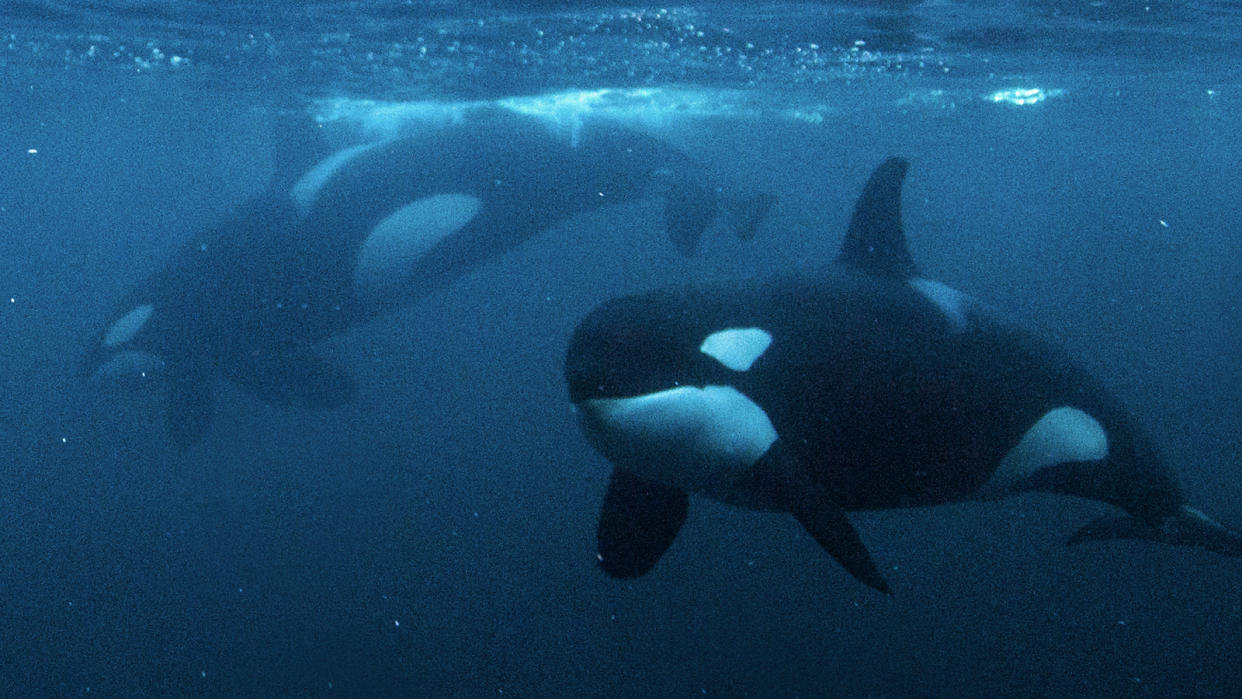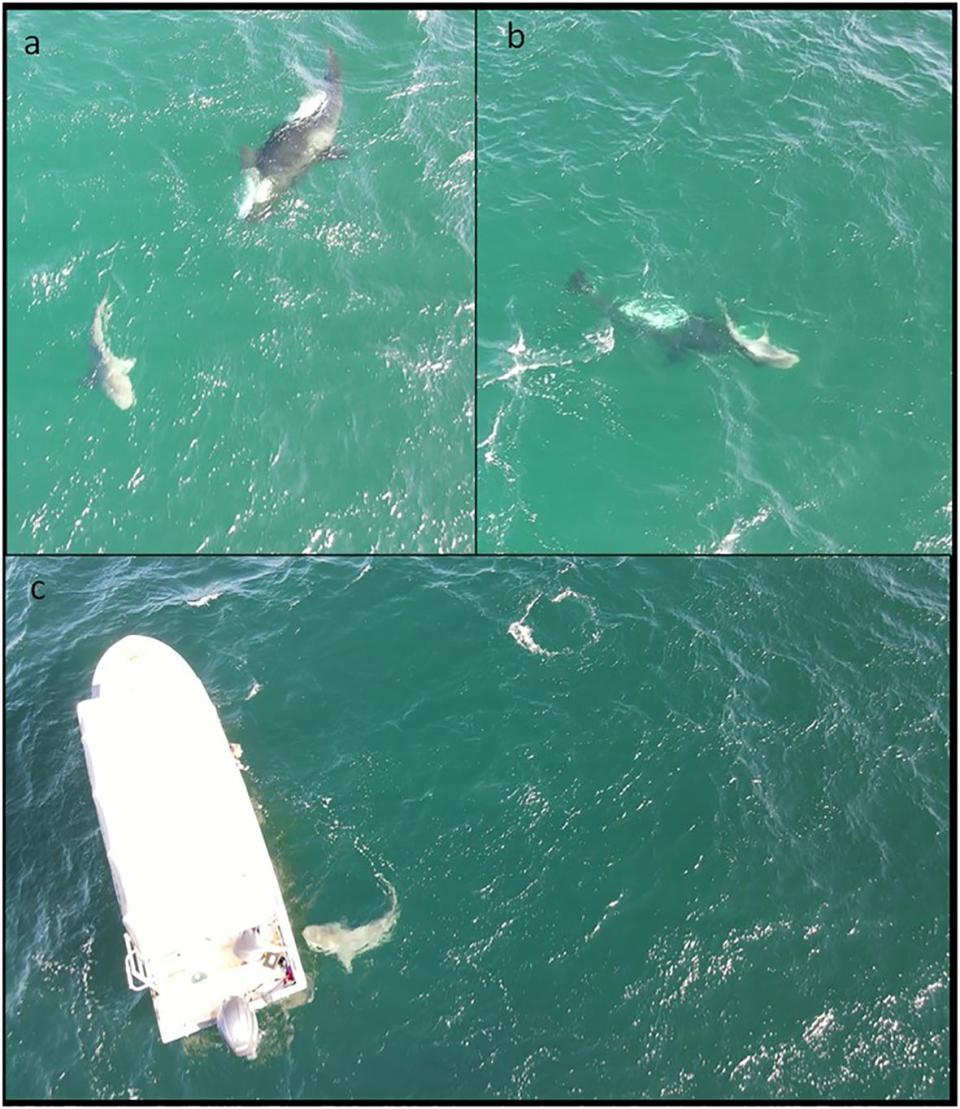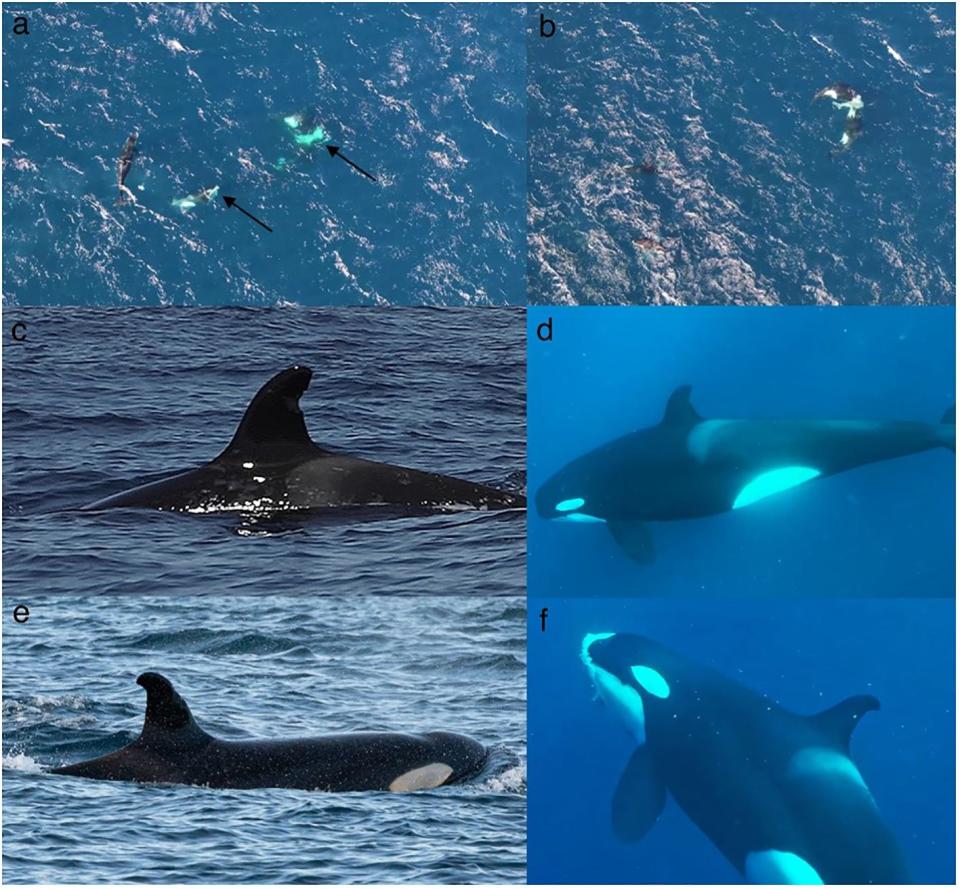Orcas are eating sharks in the Gulf of California — and it may be happening more than we think, experts say

Orcas are hunting sharks in the Gulf of California, targeting large species including bull sharks and blacktips, scientists reveal.
Three orcas, or killer whales, are behind the attacks, and researchers say it is unclear what impact these hunts could have on the ecosystem, and whether sharks will eventually decide to leave the area.
In a new study published June 4 in the journal Frontiers in Marine Science, scientists recorded three instances of orcas (Orcinus orca) preying on sharks between 2022 and 2023 in the Cabo Pulmo National Park (CPNP), a marine protected area in the Gulf of California, Mexico.
"The events described here represent the first documented predator-prey interactions between orca and sharks within the boundaries of the marine protected area of CPNP," the scientists wrote.
On Jan. 9, 2022, a drone filmed six orcas patrolling an area that's known to have numerous blacktip sharks (Carcharhinus limbatus) — which can reach up to 8 feet. In the footage, two adult female orcas, including one called Quetzalli, split away from the rest of the pod to hunt a shark. However, it managed to escape to deeper water.

On Jan. 21, 2022, local dive guide Carlos Lozano Hernandez spotted orcas attempting to kill a bull shark (Carcharhinus leucas) — a large, aggressive species that can grow to 11 feet (3.3 meters) long. The hunt was "a coordinated attack," according to the study.
"The shark could be seen on surface when one orca charged the shark on its side, missing the shark only to return to try again immediately, then turning upside down and attempting to hit the shark with her tail, a hunting technique known as 'lob-tailing' or 'tail-slapping'," the authors wrote in the study.
Related: Florida shark attacks caused by heat, not scary orcas, experts say
A second orca chased the bull shark and charged it head on, then tried to smack it with her tail. The shark headed towards a boat, "splashing frantically and erratically," as it tried to put the vessel between it and its attackers, the researchers noted. The orcas circled their intended victim for 30 seconds before leaving the area.

The last documented attack, which took place on Dec. 6, 2023, was fatal. Although the hunt itself wasn't captured on film, drone and underwater videos showed orcas with bull sharks in their mouths. Two of these orcas, named Niich and Waay, are in the same pod as Quetzalli.
The phenomenon of orcas hunting sharks has been documented for over 50 years, according to the paper, although seeing it happen is rare. "Orcas have always naturally preyed on sharks and rays in the Gulf of California," said study author Jesús Erick Higuera-Rivas. "They hunt sharks because of the high nutritional content of sharks' liver and guts," he told Live Science in an email.
According to the study, sharks and rays "are likely underestimated in the diet of orcas."
However, the recent increase in observations doesn't necessarily mean these hunts are happening more. It could be that modern technology, like drones and underwater cameras, is making it easier to spot and record the predation.
If predation of sharks by orcas is increasing, it's too soon to say whether it could have an ecological impact, according to Higuera-Rivas. "So far we haven't collected enough scientific information," he said.
RELATED STORIES
—Sharks hide in Florida canal to escape toxic red tide sweeping the coast
—Scientists investigate mysterious case of orca that swallowed 7 sea otters whole
In South Africa, two shark-eating orcas scared hundreds of great whites (Carcharodon carcharias) away from the Western Cape — but experts can't confirm if this might happen in the Gulf of California. "The population of the great white shark in South Africa is different from the population of other shark species that inhabit the Gulf of California," Higuera-Rivas said.
Rob Lott, policy and campaign coordinator at the wildlife charity Whale and Dolphin Conservation, who wasn't involved in the study, agrees. "It remains to be seen what the broader implications are for the ecosystem of orcas hunting sharks," he told Live Science via email.
Apex predators like sharks play a key role in keeping the ecosystem in balance "so there will be consequences for new locations if the shark population relocates," he said.

